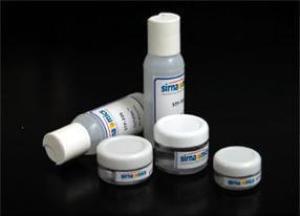Sirnaomics has received yet another NIH SBIR (Small Business Innovation Research) grant for its scar-less wound healing small interfering RNA (siRNA) solution, STP705. The funding is expected to aid in quicker completion of the IND enabling studies of this nanoparticle-based siRNA product. Since its inception in 2007, Sirnaomics has received five NIH SIBR grants as well as other government grants.

STP705 Cutasil
With headquarters in Gaithersburg, Maryland, the company was established by a team of scientists specializing in RNAi technology. The company’s mission is to bring about significant developments in siRNA therapeutics. Sirnaomics employs nanoparticles based delivery systems which have been developed in three generations. The first generation comprises self-assembled nanoparticles, the second generation consists of ligand-directed nanoparticles and the third generation comprises infrared-activated nanoparticles. These technology platforms have been employed to build an enriched pipeline of therapeutic products such as STP702 for respiratory influenza virus treatment, STP601 for diabetic retinopathy treatment and STP909 for cervical cancer treatment apart from the STP705 for near zero scar skin wound healing.
There are no approved drugs available for skin wound healing in Europe or US. A market analysis report from The Mattson Jack Group pegs the skin scarring reduction market in the US at $4 billion a year. With 42 million surgery patients in the US and surgical procedures numbering 70 million and 41.8 million in the US and Europe respectively, the STP705 meets this unfulfilled clinical requirement. The drug is presently undergoing rigorous preclinical studies in the US and China.
Disclaimer: The views expressed here are those of the author expressed in their private capacity and do not necessarily represent the views of AZoM.com Limited T/A AZoNetwork the owner and operator of this website. This disclaimer forms part of the Terms and conditions of use of this website.